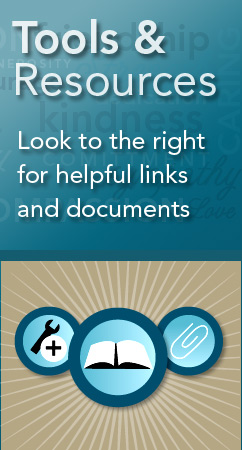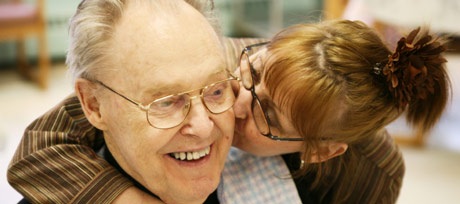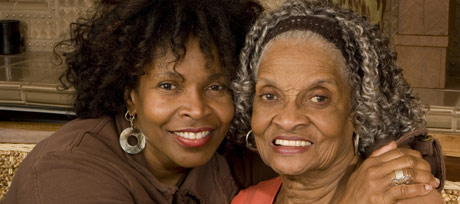
Elder Care Glossary and Acronyms
While providing care to someone who is frail or living with a disability or illness, you may encounter words or acronyms you don’t know. To help you better communicate, we have developed an Elder Care Glossary and Acronym Guide.
AARP (American Association of Retired Persons) – An organization offering information, advocacy and services to people age 50 and over.
Activities of Daily Living (ADL’s) - Self-care tasks which include the ability to bathe, dress and undress, eat, use the restroom and get in and out of bed or a chair.
Administration on Aging - Federal agency that advocates at a national level for the needs, concerns and interests of elder persons throughout the nation.
Adult Day Care – A community based group program helping to provide socialization, learning opportunities, exercise, meals and social work services. They sometimes offer respite for caregivers and provide support groups.
Advance Directive – A document which allows an individual to convey his or her wishes about the kind of life-sustaining treatment they want if they are later unable to express these wishes. In PA, also called a living will.
Area Agency on Aging (AAA) – Agencies established under the federal law to respond to the needs of people aged 60 and over in every local community with the goal of keeping seniors living independently in their own homes.
Assisted Living Facility - A facility that combines housing and supportive services. Services include assistance with personal care, medication, bathing, dressing and mobility. Other services may include laundry, activities, housekeeping and transportation.
Certified Home Health Agency – A home health agency that meets Medicaid and Medicare requirements for the provision of nursing care, rehabilitation therapies and home health aide services.
COBRA (Consolidated Omnibus Budget Reconciliation Act) – Federal law requiring employers to offer time-limited cash-premium health insurance to employees who will lose their insurance due to termination. If you were an active participant in your employer’s health plan prior to termination, you can continue the same plan for up to 18 months.
Companions – People provided by home healthcare agencies who regularly visit elders to provide socialization, light meal preparation, appointment escort or temporary relief to family caregivers.
Continuing Care Retirement Community – Housing option designed to accommodate the needs of elders who can no longer live alone. A full continuum of care is available ranging from fully independent units to assisted living to skilled nursing.
Dementia – A progressive decline in cognitive functioning, such as memory, concentration and judgment, due to damage or disease of the brain beyond the normal aging process. It is sometimes accompanied by emotional disturbance and personality changes.
DNR Order (Do Not Resuscitate Order) - Instructions in the medical record of an individual who has decided that they do not wish cardiopulmonary resuscitation (CPR). It informs medical personnel to provide care without artificial means to maintain heart functioning and breathing.
DPW (Department of Public Welfare) State agency providing a variety of information/services including Medical Assistance Insurance, Heating Assistance, Mental Health/Substance Abuse programs and Food Stamps.
Durable Power of Attorney - A document that grants a person(s) the legal powers to perform specified acts and functions related to real estate, banking and financial transactions; personal and family maintenance; and government benefits. The power is effective immediately and continues to be effective if the Grantor becomes disabled or incompetent.
Family Medical Leave Act (FMLA) – A federal law that provides caregivers up to 12 hours of job-protected, unpaid leave to care for a seriously ill parent, child or spouse. This also covers a person’s own serious illness, a birth and adoption. Workers are eligible if their company employs 50 or more people; they have at least one year of continuous employment; and they have worked 1250 hours in the 12 months prior to their leave.
Geriatric Care Manager – A professional case manager, usually a licensed social worker, who assesses an elder’s ability to live independently at home, develops an appropriate care plan for services and equipment and organizes necessary home care services.
Geriatric Medicine – A subspecialty of internal medicine focused on the clinical care of elders.
Guardianship – A legal process by which a court appoints an individual to handle the personal and financial affairs of a minor or a person of any age that the court determines to be mentally incompetent.
Healthcare Proxy – A document that is authorized by a competent person designating another person to act as his/her healthcare agent with the authority to make all healthcare decisions for the grantor should he/she become unable to communicate those decisions.
Home Health Agency – A public or private agency that specializes in providing skilled nursing services, home health aides and other therapeutic services, such as physical therapy, in the home.
Home Health Care – Health services provided in the home on a part-time basis for the treatment of an illness or injury, and covered by Medicare only if skilled care is needed and required on an intermittent or part-time basis.
Hospice – An organization that provides pain relief, symptom management and supportive services to terminally ill people and their families in the home or in a separate hospice facility.
In-Home Services – Services provided by all Area Agencies on Aging. They include homemaker and home health aide services, in-person and telephone reassurance, light chores, and in-home respite care.
Living Will – Instructions documenting a person’s wishes about the kind of life-sustaining treatment they want or do not want if they are later unable to express these wishes.
Long Term Insurance – An insurance policy designed to alleviate some of the costs associated with nursing home and home health care. Most policies provide coverage for a specified number of years or may offer lifetime coverage.
Meals on Wheels – A service that provides home-delivered meals to elderly and disabled people.
Medicaid – Health Insurance for low income and elderly people.
Medicare – Two-part Federal health insurance for those aged 65 and older and certain disabled people who have benefits under the social security system or who have End-Stage Renal Disease.
(see below)
Medicare Part A – Hospital insurance for those 65 and older; primarily provides coverage for in-patient hospital care, skilled nursing home, home health and hospice care.
Medicare Part B – Medical insurance for those 65 and older; provides limited coverage for out-patient physician services, ambulance use, durable medical equipment and home health services.
Medigap – A type of health insurance that supplements health benefits under Medicare and bridges the gap between what Medicare pays and what clinical care and prescriptions actually cost.
Nursing Home (also called skilled nursing facility) - Residential setting provides 24/7 personal care and skilled nursing care. Not all nursing homes are Medicare approved/certified facilities.
Occupational Therapy - A form of therapy that helps people improve basic motor functioning and their ability to perform tasks at home or work.
Ombudsman – A person (often a state official) who advocates on behalf of residents in an assisted living facility or healthcare institution. This person receives, investigates and resolves complaints regarding safety, health, welfare and the rights of elderly residents/patients.
PACE (Program of All-inclusive Care for the Elderly) – A program that provides low-income elders with all of their health, medical, rehabilitation, social and support services along with their health insurance for one monthly fee.
Palliative Care - Any form of medical care or treatment that concentrates on reducing pain and/or the severity of the symptoms of the disease, rather than focusing on a cure.
Skilled Nursing Facility – A nursing home providing services for residents whose general condition tends to be unstable, and requires close observation and professional care 24/7. Some skilled care is financed by Medicare; however, the majority must be covered by private funds or Medicaid.
Social Security Disability Income (SSDI or SSI, Supplemental Security Income) – A monetary benefit paid through Social Security to persons under 65 with disabilities.
Speech Therapy – A therapy that treats speech impairment from stroke, dementia, Parkinson’s Disease and Multiple Sclerosis; voice disorders; speech disorders; and swallowing disorders (dysphasia).
Telephone Reassurance – Regular, pre-scheduled calls to homebound older adults to reduce isolation and provide a routine safety check.
Veteran’s Benefits – Medical and other benefits through the Veteran’s Administration. Surviving spouses are sometimes entitled to certain services as well.
Visiting Nurses – Registered nurses who provide skilled nursing, rehabilitation or hospice service at home.











